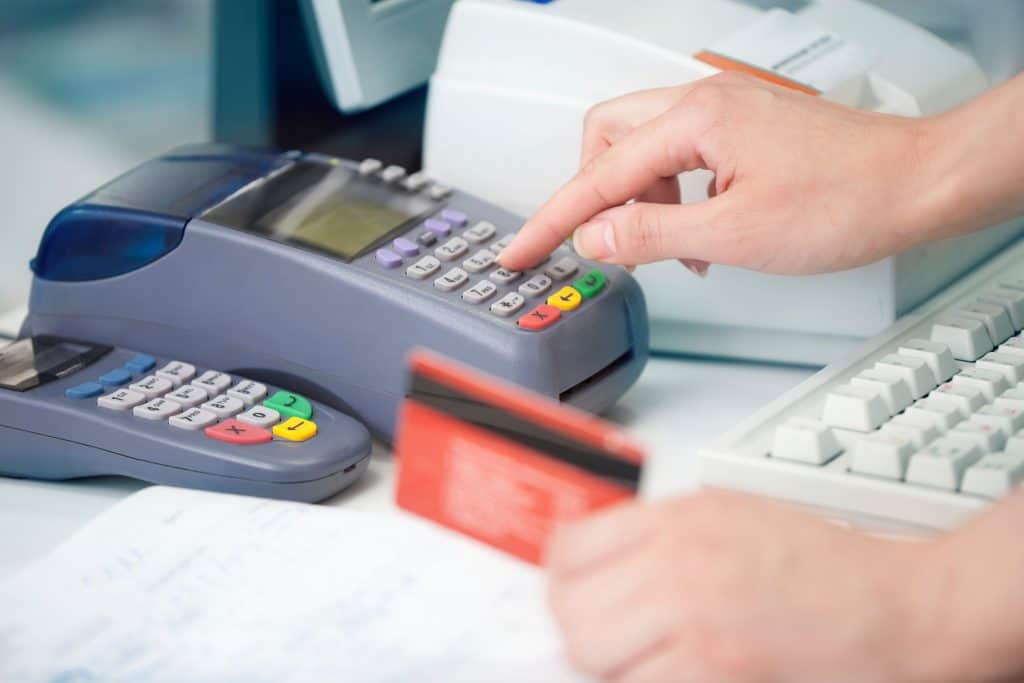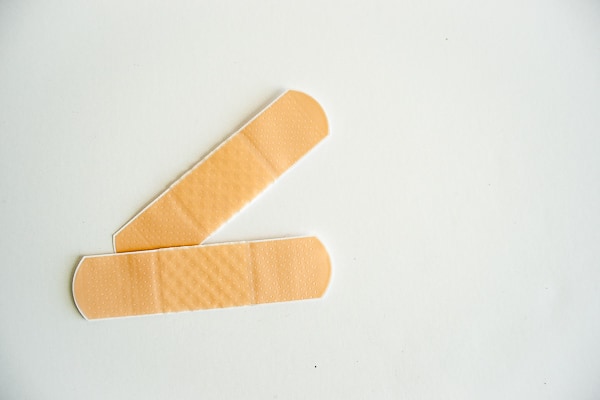A Mess Free Life may collect a share of sales or other compensation from the links on this page.
So far in the How To Love Your Money Series, we’ve discussed Saving Smartly and How To Develop A Spending Plan.
Today I’d like to examine debit cards and how the work.
A debit card is a “pay now” option as opposed to a credit card which is a “pay later” resource. All debit cards are tied directly to your bank account and work like you’re paying with cash with one distinct difference – it can mistakenly ‘feel’ like you’re paying with credit.
With debit cards, you’ve got to have the money in the bank to cover the purchases you’re making. These cards look so similar to credit cards, sometimes people have a hard time distinguishing between the two and using debit cards appropriately.
Table of Contents
HERE ARE SOME HELPFUL TIPS TO HELP YOU WITH MANAGING YOUR DEBIT CARD
-
BE IN THE KNOW
Here’s the problem with debit cards – most people don’t know their checking account balance and as a result they find themselves overdrawn or without sufficient funds. You need to know the status of your account before you make a purchase.
One way you can accomplish this is to set up online access to your banking accounts so you can mange debit card purchases, checks and bill paying. You can easily go into your account and see if a check you wrote last week has cleared, confirming your account balance. Having a one stop shop for managing your money is a smart strategy to consider.
If you’re struggling with your debit card, you may want to consider other alternatives I outline in my Good Money Habits Guide.
When using a debit card don’t forget to:
- Take your sales receipt
- Record all transactions in your check book register as soon as possible and check your transactions online
- Remember to account for any bank fees that you may incur
- Review your statements carefully for mistakes, or problems – call immediately if you find any discrepancies
- Follow up when indicated with a letter to your bank
2. KNOW YOUR LIMITS
Many debit cards have daily spending and cash withdrawal limits. These limits are meant to protect you in case your card is lost or stolen. But, if you’re at a store and making a bigger than usual purchase, you might forget these limits resulting in your card being declined. You can increase or decrease your limits based on your spending needs. Contact your lender to adjust your limits when indicated.
3. TRACK YOUR SPENDING
Remember to track your spending. When you make a purchase, make a withdrawal from your account, or pay your bills that exceed your account balance, you may be subject to “overdraft fees” if you’ve opted for the overdraft protection. Just about all the financial institutions out there offer this service. They persuade you to obtain this “protection” to shield you from overdraft and bounced checks.
You don’t need it if you’re diligent about tracking your spending. If you’re currently not diligent, you need to get diligent and fast. This type of protection is just the same as using a credit card and if you’re trying to get out of debt and live within your means, this “protection” won’t help your plan and could really derail it. This protection comes with a hefty price tag. You may be charged a fee for each purchase that uses the overdraft, but for being overdrawn as well.
Balance your account and track your spending to avoid these fees altogether.
4. AVOID SURCHARGES
Many banks and institutions charge a fee if you use another bank’s ATM, as well as charging non-account holders to use their ATMs. Don’t pay these extra fees. Either find a bank that will reimburse you for those fees, like my bank does, or choose a bank with ATMs convenient to where you live or work.
5. TAKE ADVANTAGE OF FREE ALERTS
Many banks and financial institutions offer the same free, automatic updates by phone or email for debit cards as they do for credit cards. You can receive customized alerts when the following occurs:
- An ATM withdrawal or debit card activity exceeds your set dollar limit
- Your online ID or password changes
- Any large transaction is made
- You log in from a different location
6. KEEP IT SECRET
You’ll need to choose a PIN to securely access your account. Choose a unique number combination. Don’t use obvious choices like your birth date or your address or phone number.
Keep your PIN private and make sure to memorize it. Don’t be like a friend who wrote it on the back of her card. When she lost her card, someone was able to withdraw $500 on her account because they had her PIN right there on the back of the card. They must have felt like they hit the lottery! Oh, and the bank didn’t reimburse her for the withdrawal.
If you feel like your PIN has been compromised in any way, contact your financial institution and change it immediately.
7. PLAN AHEAD IF YOU’RE TAKING A TRIP
The first time I went to Hawaii (yes, I’ve been more than once), I tried to use my debit card to make a purchase at a local gift shop. When it was declined I was confused.
Luckily, I had my American Express with me and was able to use it to buy my daughter a gift. When I got home, I called the bank to ask them why they declined the purchase. They explained that is was outside my normal debit card use and declined it assuming my card had been either lost or stolen.
If you’re planning a trip, make sure you let your bank know so they won’t stop legitimate purchases on your debit card.
I had put aside money for the trip so when I got home, I just paid my American Express card in full for the Hawaii purchases.
8. DON’T FORGET ABOUT HOLDS
Some transactions like gasoline purchases and hotel stays won’t be immediately cleared. Your bank will place a “hold” on the transaction until the final amount is known. Funds are earmarked to cover potential additional costs so you’ve got to be mindful of this when using your debit card. Most transactions have a less than 24 hour hold, and all holds are removed within 72 hours of the initial transaction.
9. EXTRA PROTECTION
Most debit cards offer the same extra protections that credit cards offer.
- Zero Liability means you’re not liable for any unauthorized purchases made with your debit card as long as you notify your bank immediately.
- Federal law requires financial institutions replace funds for losses resulting from fraudulent card use within 10 business days from notification.
- You have dispute resolution options should an issue arise with a purchase made with your debit card.
Debit cards are wonderful tools to manage your money IF you use them appropriately.
If you’ve struggled with living within your means and managing your money, I suggest not using debit cards and instead of paying with cash until you have a better handle and control on your spending.



